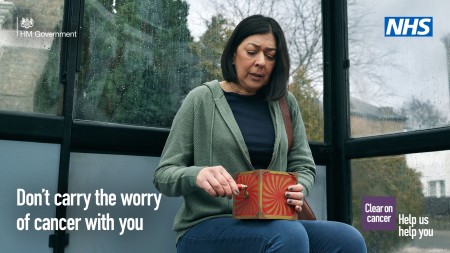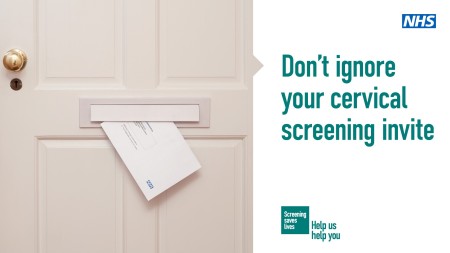In 2025, it's estimated that 3.5 million people in the UK will be living with cancer.
This page is to provide information, help and guidance to patients regarding cancer.
There are more than 200 different types of cancer, and each is diagnosed and treated in a particular way. Cancer Research UK have information on symptoms, diagnosis, treatment, research and coping with all types of cancer. Click here to be sent directly to their page.
If you are worried about symptoms you are experiencing or worried you might have cancer, Macmillan have a page with support and information to help you. Click here to be sent direct to their page.

Screenings for cancer
The main potential benefit of screenings is saving lives from cancer. Screenings are the process of identifying healthy people who may have an increased chance of a disease or condition. Screening can help to detect cancer at an early stage before symptoms appear and if picked up early, treatments for cancer are more likely to be successful meaning more people can survive. By the time symptoms appear, cancer may have grown and spread and be harder to treat or cure. Screenings can also prevent cancer from developing in the first place. Screening providers will also offer information, further tests and treatment if required to reduce associated problems or complications.
Screenings are always a personal choice for a patient to participate in or not. This page provides information on different cancer screenings.
Symptoms include: increased frequency in need to pass urine, difficulty passing urine, feeling of not completely emptying bladder after peeing, feel of urgent need to pass urine, blood in urine, pain when passing urine or ejaculating.
The symptoms of prostate cancer are similar to that of symptoms of benign prostate issues.
Risk factors: aged 50 and over, ethnicity (if you are black you are at higher risk), family history, body weight and diet.
Click here for poster on risks of prostate cancer
Useful links:
Prostate Cancer UK | Prostate Cancer UK
About bowel cancer
Symptoms include: bleeding from anus, blood in stool, persistent and unexplained change in bowel habit, unexplained weight loss, extreme tiredness, pain or lump in stomach
At risk factors: over 50 years old, strong family history of bowel cancer, genetic conditions such as Lynch syndrome, non-cancerous growths in bowel, longstanding inflammatory bowel diseases, type 2 diabetes, unhealthy lifestyle
For more information on bowel cancer click here

What is a bowel screening?
The bowel cancer screening test is called the faecal immunochemical test (FIT). A FIT test looks for tiny traces of blood in a stool sample which can be a sign of bowel cancer.
Who is offered bowel screening?
In England, the screening programmes are posted out to patients that are eligible every 2 years. Patients registered with a GP practice aged between 60 and 74 are eligible for testing and will receive the bowel cancer testing kits in the post. The NHS are gradually expanding the programme to invite patients aged between 50 and 59. People over the age of 74 can request a screening kit every 2 years by contacting the bowel cancer screening programme on 0800 707 6060.
For more information on the bowel cancer screening programme please follow the link: Bowel cancer screening | Bowel cancer | Cancer Research UK
Useful links:
Bowel Cancer | Bowel Cancer UK
Bowel cancer | Cancer Research UK
Bowel cancer - NHS (www.nhs.uk)
What is cervical cancer?
Symptoms include: unusual vaginal bleeding, pain or discomfort during sex, vaginal discharge, pain in pelvis
At risk factors: age (more common in younger women), HPV virus, HIV, Smoking tobacco, STI's, Contraceptive pill, family history, previous cancer diagnosis
For more information on cervical cancer click here
What is a cervical screening?
Cervical screening (smear test) checks the health of a patient's cervix. It does not test for cancer but is a test to help prevent cancer. During a cervical screening a small sample of cells are taken from the cervix and checked for certain types of human papillomavirus (HPV) that can cause a change to cells of the cervix.
You will be invited by letter for a cervical screening and when you have received an invite you can contact the practice to arrange an appointment.
If these types of HPV are not found no further tests are needed and you are recalled as normal. If they are found further tests will be conducted. Find more information on results of cervical screenings here: Getting Your Smear Test Results | Jo's Cervical Cancer Trust (jostrust.org.uk)
Who is offered cervical screening?
You should be invited for a screening if you have a cervix. You will automatically be invited by letter for cervical screening if you are aged between 25 and 64 and registered female with a GP surgery. You may get your first invite 6 months before turning 25. Trans men, non-binary and intersex patients may also have a cervix - please contact the practice if you would like to be put down for a cervical screening in these cases.

For tips on cervical screenings and more information please click here
Useful link:



